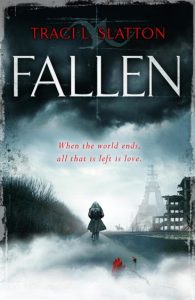Novelist Rick Moody thinks authors shouldn’t blog. Maybe he’s right. What do I know, other than when I was at grad school at Columbia, scuttlebutt had him putting rips in his own jeans to give himself credibility, because we all knew he came from a rich family?
He’s a decent writer. Being loaded and coming from the Upper Middle Class doesn’t preclude talent. I acknowledge his competence, though I am not interested in his work. I personally think cynicism is the easy way out. It’s what spoiled, entitled folk give themselves instead of the more difficult dignity of faith and hope. They seem to mistakenly think that the “sophistication” of such negativity is faith and hope. Whatever. If people like his work, they’ll buy it.
I am an author, and I blog. I think voraciously, I am evolving, I am exploring, and I blog. What I think now might not be what I think in a year, or ten. I am engaged in this inscrutable question of life as a human being in this vale of tears. I am learning and growing.
Hence this blog, the title for today’s posting having been suggested by Al Gore’s movie. I like Al Gore. He would have made a fine president. I don’t care that he’s divorcing Tipper and that he fell in love with a woman who wasn’t his wife. Gore is still a smart, decent man. I have that feeling about him.
Besides, what do I know about global warming? I’m not sure I believe in it. From what I can tell from my own research, and yes, I’ve done some, the Earth goes through long periods of complicated climate change and weather instability. It may be a neat ‘n’ easy package to blame the military-industrial-pharmaceutical-biotech complex for causing greenhouse gasses. But can we really be sure? I mean, I want to blame and hate industry. I fork over the extra $$ for organic veggies, after all. I am heart-broken over the rending images of our beautiful Mother Earth in disarray. I’m just not sure that in this case–and I pretty much see Monsanto as the face of the 666 Anti-Christ and herald of the Apocalypse–I’m not 100% convinced that it’s all so tidily laid at one ugly, fungus-riven, toenail-shrivelled foot.
It goes this way: people think anything natural, in the wild, is wonderful and clean, etc. But there are plenty of rivers in Colorado you can’t drink from because the beavers are crapping, tainting the water. And there are plenty of natural substances I don’t want to ingest, like cobra venom.
This may get me scorned by a lot of other card-carrying registered Democrats, of whom I am one. But one thing, in an insecure world, is for sure: no one is more vicious than an angry liberal whose set-in-stone, holier-than-thou truths have been questioned. Those people are out for blood. Notice how much vitriol they spew when Obama is questioned–the same people who called Bush 1 and Bush 2 anything but a human being.
I wasn’t crazy about the Bushes, either. Marie Antoinette, anyone? Which leaves me wondering, where the hell are the moderates? The socially-liberal, fiscally moderate folks who aren’t trying to shatter our Constitution and turn our country into a replica of socialist France? I am pro-gay marriage. I am pro-life and pro-choice, both at the same time. I am hawkishly pro Israel. I am pro having an entire government comprised of people of color. I just don’t want a big, paternalistic government who takes money away from the middle class: are you listening, President Obama? Give scholarship money back to the middle class. Stop “going beyond the Constitution.” Stop it right now. I like the Constitution.
I don’t care if people worship Adonai, Jesus, Buddha, or Zeus: I surely don’t want a mosque on the World Trade Center site. I was in NYC on 9/11, standing on the roof of my husband’s parents’ building, watching the towers fall in a viscous cloud of soot and poison. I am always up for a slanted perspective on things, but I think those people are CRAZY NUTSO CUCKOO who claim it was the US government or Israel who caused the collapse.
So I like Senator Joe Lieberman, who seems to share many of my values. But if he teams up with Sarah Palin, who is a first class idiot, I will have to send him a strongly worded letter expressing my dismay.
Enough of politics, a topic which came out of my riffing on truth. We all know that politics and truth are incompatible bedfellows. I meant to say this: first wives are always right about their husbands. They just are. This said, a second wife can know something else about the same rasty man–and so get better results out of him. I’ve seen that a lot, too. Men can learn. Women can learn. People do change, if they want to. If they’re willing to work REALLY hard on themselves.
And teenagers are always up to something. There are two kinds of parents in the world: those who accept this truth, and those who are delusional. The parents who are the MOST sure that their baby boy would never use such vile language, or that their precious daughter would never act like a slut, are exactly the parents who son is widely known to be the most foul-mouthed kid to walk the high school halls in twenty years, and whose daughter was surfing internet porn at age 10 and sending cell phone pix of her bare boobs to boys when she was 13. This is fact. Watch the parents. The more controlling they are, the more they try to regulate who their kids see, the more judgmental they are about other parents: the farther out on a limb their teens are going. Some kids have good parent-management skills and hide it well, that’s all.
Having teenagers is a lesson in humility and, if you can keep your sense of humor intact, ruefulness. It’s a divine comedy. I was just emailed this by a psychologist who knows my intelligent, talented, precocious, beautiful, wild teenage daughters all too well: “Don’t feel stupid. My advice going forward is not to ask ‘are you?’ But to say ‘how much are you?’ to whatever question you are asking.”
When parents go to a kindergarten party, they can take a page from my book of life: realize that half these adorable kids will be dealing drugs before they get out of 11th grade.
What else? I don’t know, I’m still in a process of discovery. Was this worth sharing? Can’t say for sure. Moody may have a point.









